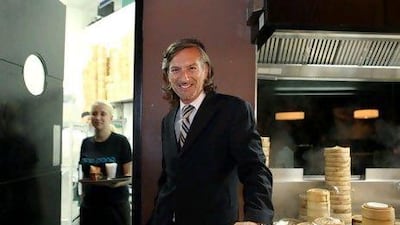What began a decade ago as a one-man restaurant consultancy in Dubai has since grown to encompass 16 employees across four countries. Daniel During, the founding principal and managing director of Thomas Klein International, talks about his successes and failures in setting up eateries such as Ping Pong Restaurant in Dubai Mail and T-Junction in Emirates Towers in a fiercely competitive industry.
How did you get started when you moved to Dubai in 1997?
The owner of Wafi approached me to conceptualise the restaurant of the Pyramids Club and manage the whole project. Six months in I was offered the job as general manager in charge of food and beverages. I would create one restaurant, open it, give it to my operations manager and get to my next one. I came with a mandate to open four restaurants and ended up opening 18. I always had a very low boredom threshold.
Why launch your own firm?
A lot of people in the region who want to go into the restaurant business don't have the know-how. You have to franchise to buy a solution in the box. Then you have to set up your own operations team. What doesn't exist is a service for someone who wants to be an owner, doesn't understand the business and wants to learn.
What's been the biggest challenge in working with clients?
The challenge comes after we start working on projects - on implementation. Sometimes you want to do what the client doesn't. If he wants to open the restaurant in the middle of Riyadh, and I don't think it's a good idea, I will say "it won't function".
Have any of the restaurants you've worked on failed?
Yes. That's why I'm so adamant. There was one restaurant where despite all of our warnings the client did open it. It was a failure. It's not something that I would like to repeat.
More than half of your firm's employees are based outside the Emirates - in Chicago, Buenos Aires and Brussels. How do you effectively communicate with everyone on projects?
I travel a lot. Most of the time I talk to employees several times a day on the phone. I can spend two or three hours talking to Buenos Aries or Brussels. I work about 20 hours a day.
But it sounds like you don't need to work that long. Do all those conference calls cut into productivity?
All these meetings is what makes us unique. I think it brings up ideas.
How does your firm come up with successful concepts locally when many employees aren't even based here?
In order for our restaurant concepts not to look like everything in the market, we like our designers outside Dubai so they get exposure from other parts of the world. We try to set trends, not follow them. How do we make sure these concepts have a grip in the Middle East and the culture? That's why we're here [in the Dubai office]. We keep on briefing the designers and understand what a customer needs or wants.

